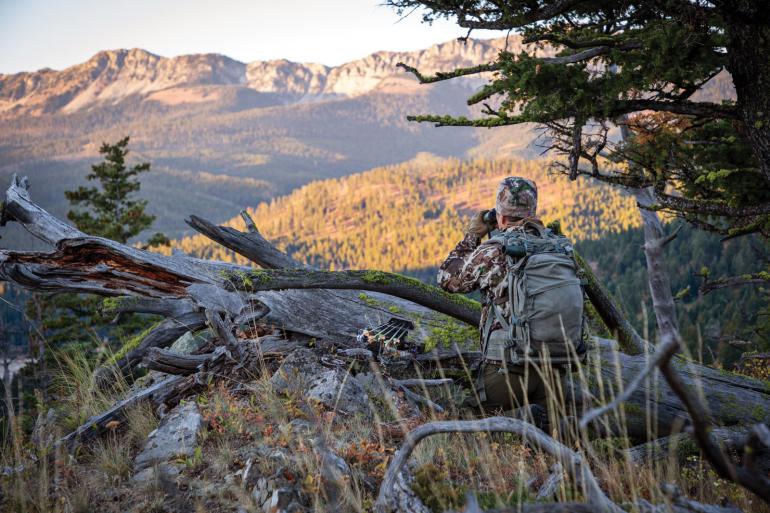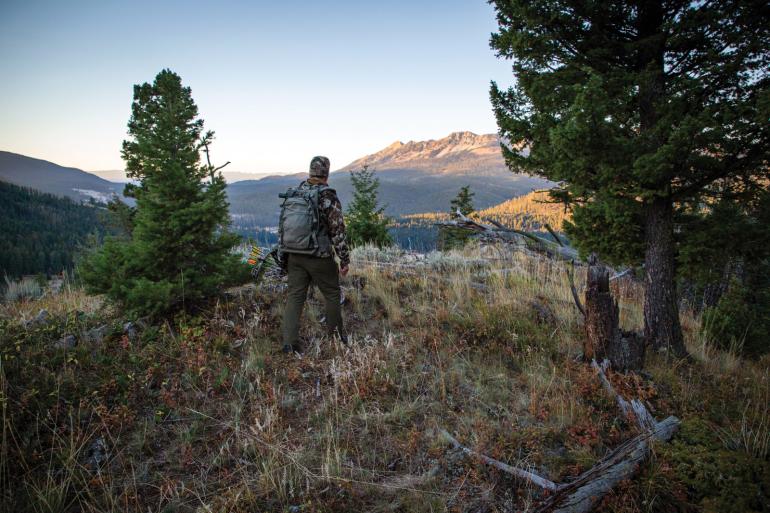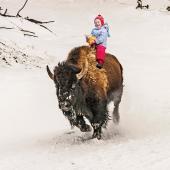Bringing It Home
Searching for a deeper meaning to the hunt.
A mixture of disappointment and relief hit me as the bull elk I’d been pursuing disappeared over the next crest. There was no more time. I had exhausted all the days allotted to me, all the daylight, all the chances. I recalled my sunny naps on the mountainside and wondered if those afternoons had been squandered. Each encounter over the past several weeks had ended the same, but for different reasons. A few of them replayed in my mind as I watched the orange sky fade to black. I stood up and breathed deeply, then switched on my headlamp for the hike back to camp. Although the evening chill would soon wear off in my exertion, I would still feel the weight of anticipation until next season.
Every adventure has something to teach those who pay attention.
An immense amount of hope and determination resides in a hunting license that’s folded and tucked into a pocket. And when admission to the greatest contest anyone might engage in is granted, the focus can become singular: to kill. But death, while an important aspect, isn’t the ultimate measure of success in hunting. Killing is primal (and was historically essential to hunters), but it has a tendency to eclipse all other aspects of the hunt. When that happens, though, it erodes and blemishes what are otherwise brilliant jewels for sportsmen to gather.
Every adventure has something to teach those who pay attention. Some lessons are learned quickly, such as, “Sharp blades are always to be respected.” A scar on my left thumb from an embarrassing event in my youth reminds me when that knowledge was gained. Other lessons require being steeped in the woods over many trips. One encounter with an animal might be chance, but several form a pattern that reveals a favored route through the forest. A keen hunter leverages this into a predetermined meeting. Still, the advantage is with the wildlife, and missteps on the hunter’s part mean no shot can be made. Great hunters are forged through embracing these mistakes instead of being afraid to make them.
Hunters of old were naturalists first. They saw themselves as students and discoverers of all that nature held.
But even great plans sometimes fail. A quiet mountain, seemingly lifeless, frustrates all who hunt. And yet it is still refreshing. Being immersed in the wild quiets the chaos from the civilized world. What was once hurried and harried is now calm and simple. Natural rhythms are renewed: up at light, asleep at dark. Responsibilities that once dictated daily routines are forgotten. In this place, everything except what really matters melts away. The ruggedness challenges those who step into it. And strangely, part of the allure is knowing that poor decision-making or careless mistakes could result in an untimely death in the woods.
Hunters of old were naturalists first. They saw themselves as students and discoverers of all that nature held. Theodore Roosevelt, when cataloging his hunts, included anecdotes about the grasses and trees in which he would find game. George Grinnell, a paleontologist, remarked on the landscapes and birds he saw as well as the animals he killed for their hides and meat. These explorers saw value in the other living things in the woods. And in learning how each was part of a whole, they became more adept hunters. Both were founders of the Boone and Crockett Club—one of the first natural-resource conservation groups—and for both there was always more to be gained than another kill.
Old traditions—once new occurrences—become celebrated with almost ritualistic precision. Camaraderie increases around a campfire until it becomes what is sought after most in hunting camps.
To top it all off, experiences in the woods are made richer when shared. Old traditions—once new occurrences—become celebrated with almost ritualistic precision. Camaraderie increases around a campfire until it becomes what is sought after most in hunting camps. Regardless of a hunt’s outcome, the greatest stories stem from the escapades around camp or in the woods. Long after steaks are gone—if we’re lucky—and sometimes those friends, these remembrances become most dear to us.
Regardless of whether tags are notched, there are many other prizes to be found in the woods. And though a hunter must wait an entire year to try again, and packs might come out empty, the soul can be fulfilled regardless. That’s the beauty of it—the pastime, the way of life. It’s what draws many hunters—myself included—back into the woods year after year for more.











